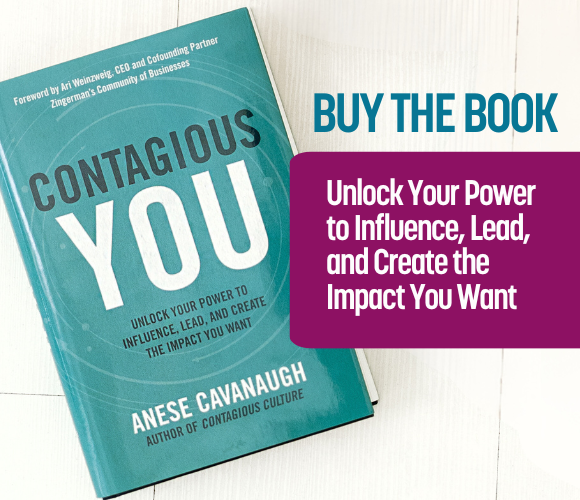
I recently had something big fall apart with my team. It's really quite simple, we had a vendor who had an agenda, and in the land of "assuming good", I missed it. Five months of trying to collaborate, find clean solutions, and do good work—and the whole time, ulterior motives were at play.
I'd love to say I was innocent in this, but I wasn't. I got a glimpse of this in one of our initial meetings; I even called it out and got curious about it with the vendor. But with somewhat convincing reassurances (and me really wanting it to work), I overrode my gut sense that this person wasn't as clean, well-intended, and competent as they said. Five months later, after spending more brain and heart cycles than I'm proud to admit, we parted ways. But the damage had been done, and the scar tissue created. Whose scar tissue? Mine. And my team's. One of my super powers is trust and assuming good, and this situation had called that all into question. For all of us.
There was a leadership choice point here: contract or expand.
My team and I had what I call an honest and open "fit session" (code for: temper tantrum, vent, lay it all out). Then... we rebooted, came up with a new plan, got a different partner in place, and dove back in. Energy was reinvigorated, our team had a new level of trust and intimacy, we pulled all the lessons from the incident we could pull, found gratitude for the learning (and even the vendor), and were especially grateful that we caught it and acted upon it "sooner" than later. I made promises to my team to not get us into a situation like that again (or to at least bring them in sooner for their own gut checks), and we were off.
I'd burned in it, and I came out stronger. Wiser. More vulnerable and raw and also more powerful with a sharper eye for nonsense. We as a team had burned in it, and came out stronger. Edgier. More discerning and less patient (in necessary and important ways), and even more authentically and vulnerably connected.
Two months later, we were in a meeting with the new partner. We were crunching, a lot of things coming together at once. Things flowing, flowing flowing. Until we hit a block with this project, the block being a result of the "shrapnel" from the previous vendor's agenda. In the midst of flow and healing, there it was again. And I was right back where I started; careful, irritated, my energy off, in truth—I was pissed. I contracted. It all came back. There's another choice point here as a leader—go back into it, regurgitate the story and emotion (if only energetically), project that energy and intention all over your team, OR breathe, get present, notice what lit you up, and lean into what is here right now. That's where the best answers will be—here, not there.
We'd need to set the shrapnel right; it was going to be a pain in the butt—and it needed to be done. We'd also needed to acknowledge the impact of inaccurate information that had been given in order to serve the vendor's agenda; the impact was especially sour and disappointing—and onward. And me? I'd personally need to connect with a trusted friend or advisor later that day to work through the "charge" that got lit up so I could truly clear it and release it. My team didn't need that energy, and neither did I, but I needed to be responsible for taking care of myself so I could truly release it.
And we were off. The mess has been cleaned up. The money, time, and energy spent placed in the column of "lessons from the trenches that we wouldn't have gotten if we didn't show up and go for it". And we're stronger and tighter as a team. With more trust and alignment and shared learning, we now also have better systems and agreements in place to support all of us, and the company, as we move forward. And me personally? While I still get the "ick" when I remember this, it is not with the same charge that creates negative and unintended impact if not taken care of.
Why share this with you? Because stuff happens. Crappy stuff. Even with the best of intentions—often with the best of intentions—things fall apart, people lie, agendas compete, shades of gray get rationalized, people get disappointed, unintended impact occurs, stuff happens. And there will be residue. And you have a couple of ways you can handle it: 1) contract, quit, and take your marbles home, regurgitate the story, keep it painfully alive, 2) expand, grow, and learn all you can, find gratitude for the learning, 3) lash out, and create even more negative impact, more ripple effects, more energy sucks, 4) be real, process the disappointment, hurt, take care of yourself, ask for help, be intentional, find your contribution to the ick, and climb back on, or 5) a combination of any or all of the above, in whatever way feels right and serves you and your company most. (Let me save you time, hit up #2 and #4 for optimal impact, learning, and joy.)
Reading this, you may have flinched at #4, specifically in "finding your contribution to the ick". And here's what I find, that can actually be incredibly liberating. There's always some way we've contributed, no matter how crazy that may seem. In my case my contribution was disregarding my gut and trying over and over again to make something—that I sensed was wrong—right. In another's case it might be not making requests or holding boundaries or simply looking the other way. Conflict takes two, find your contribution, find your solution.
For more on navigating conflict, leaning in with your team, authentic emotion in business, managing yourself, and rebooting, read Contagious Culture, coming out next month.
This article originally appeared on Inc.com on October 19, 2015.
Next Steps
- Learn more about creating a Contagious Culture in your work and life
- Subscribe to The Beat - the weekly reflection and accountability tool
- Share this post with your network or add your comment below!
.png)







